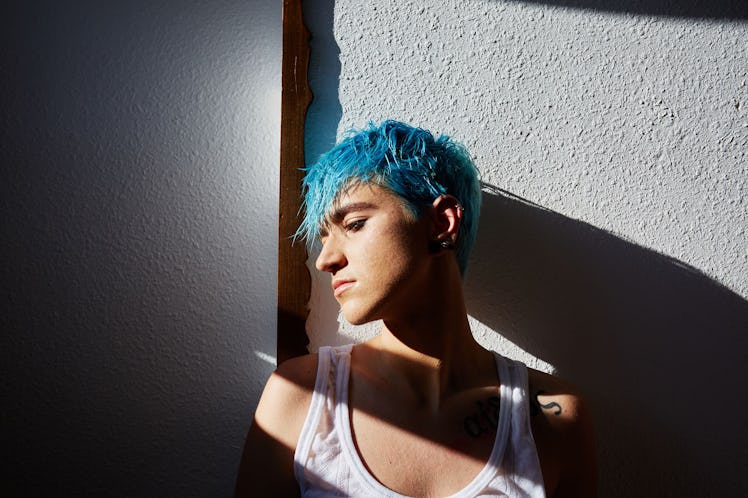
An Expert Says These 3 Things That Happen In Fall Can Trigger Headaches, So Be Prepared
If you regularly get headaches or migraines, you might know some of the triggers that cause them for you. From stress to certain foods, there are all sorts of things that can cause those temples to pound and have you desperately searching for the nearest bottle of ibuprofen. I get it, y'all: I've been getting migraines since puberty, and I've come to learn a thing or two about what causes them, or at least what seems to set them off. Additionally, I tend to find myself getting bad headaches in the fall, but I've never been sure as to why, exactly, that happens.
If you get fall headaches, too, you know what I mean, and while it's certainly not a fun issue to deal with, the good news is it's not some random or totally inexplicable phenomenon. According to Dr. Vincent Martin, director of the Headache and Facial Pain Center at the University of Cincinnati Gardner Neuroscience Institute, the change in seasons can bring about all kinds of environmental factors that can, unfortunately, trigger headaches.
Rest assured, there are triggers you can watch out for and steps you can take to help guard against these monster headaches. Take a look at what might cause your autumnal aches, and remember: You're not alone, and you are strong enough to get through the pain.
Allergens Are In The Air, Which Isn't Great For Your Head
"Perhaps the most common headache and migraine trigger is allergens, and fall is full of ragweed and mold," Dr. Martin tells Elite Daily over email. Plus, he explains, since your body will likely increase the amount of histamine it produces in an attempt to fight off the allergens you're coming in contact with, that, in and of itself, can trigger head pain by inflaming your sinuses. Ouch.
So what's the best solution here? According to Dr. Martin, you can "use a HEPA [high-efficiency particulate air] air filter, mattress, and pillow encasings," to keep your home as migraine-friendly as possible, as well as "doctor-prescribed allergy medications to reduce aggravation of the sinuses."
The Changing Cycle of Light Can Wreak Havoc, Too
Is your head pain due to the fact that your eyes are just too sensitive to the shifts in light? Well, maybe, but Dr. Martin says headaches can also be more common in the fall because the season is met with less daylight, and this commonly shifts people's sleep schedules. "Maintaining a consistent sleeping pattern is essential for migraine and headache sufferers," he explains, "as their chance of an oncoming attack significantly rises when the pattern is disrupted."
So, whatever your schedule looks like on any given day, if you know you're prone to headaches or migraines, do yourself a favor and make sure you're in bed by a reasonable hour. A late night out definitely isn't worth the pain you'll feel come morning.
All The Shifts in Weather Can Make Your Head Hurt
Weather changes are a common cause of migraines and headaches, and the cooling temperatures in the fall are a primary trigger, Dr. Martin explains.
Unfortunately, he adds, it's not 100 percent clear as to why this happens. Still, Dr. Martin says there are a number of studies being conducted to understand this correlation. "It has even been suggested that factors such as changing barometric pressure, humidity, and temperature can be triggers," he tells Elite Daily.
Since all of these factors tend to occur at the same time, though, it is pretty difficult to pinpoint which one is the true culprit. That said, staying on top of other preventative measures, like air filters and medications prescribed to you by your doctor, along with proper hydration, will be sure to keep your health in check. Worst comes to worst, it never hurts to check in with your own doctor about which treatment is right for you.
This article was originally published on